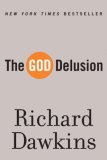Summary | Excerpt | Reviews | Beyond the Book | Readalikes | Genres & Themes | Author Bio

Critics' Opinion:
Readers' Opinion:
First Published:
Sep 2006, 416 pages
Paperback:
Jan 2008, 464 pages
 Book Reviewed by:
Book Reviewed by:
BookBrowse Review Team
Buy This Book
'Naturalist' is an ambiguous word. For me it conjures my
childhood hero, Hugh Lofting's Doctor Dolittle (who, by the way, had more
than a touch of the 'philosopher' naturalist of HMS Beagle about him). In the
eighteenth and nineteenth centuries, naturalist meant what it still means for
most of us today: a student of the natural world. Naturalists in this sense,
from Gilbert White on, have often been clergymen. Darwin himself was
destined for the Church as a young man, hoping that the leisurely life of a
country parson would enable him to pursue his passion for beetles. But
philosophers use 'naturalist' in a very different sense, as the opposite of supernaturalist. Julian Baggini explains in
Atheism: A Very Short Introduction
the meaning of an atheist's commitment to naturalism:
'What most atheists do believe is that although there is only one kind of stuff in the universe and it is physical, out of this stuff come minds, beauty, emotions, moral values – in short the full gamut of phenomena that gives richness to human life.'
Human thoughts and emotions emerge from exceedingly complex
interconnections of physical entities within the brain. An atheist in this sense
of philosophical naturalist is somebody who believes there is nothing beyond
the natural, physical world, no supernatural creative intelligence lurking
behind the observable universe, no soul that outlasts the body and no
miracles – except in the sense of natural phenomena that we don't yet
understand. If there is something that appears to lie beyond the natural world
as it is now imperfectly understood, we hope eventually to understand it and
embrace it within the natural. As ever when we unweave a rainbow, it will not
become less wonderful.
Great scientists of our time who sound religious usually turn out
not to be so when you examine their beliefs more deeply. This is certainly
true of Einstein and Hawking. The present Astronomer Royal and President
of the Royal Society, Martin Rees, told me that he goes to church as
an 'unbelieving Anglican . . . out of loyalty to the tribe'. He has no theistic
beliefs, but shares the poetic naturalism that the cosmos provokes in the
other scientists I have mentioned. In the course of a recently televised
conversation, I challenged my friend the obstetrician Robert Winston, a
respected pillar of British Jewry, to admit that his Judaism was of exactly this
character and that he didn't really believe in anything supernatural. He came
close to admitting it but shied at the last fence (to be fair, he was supposed
to be interviewing me, not the other way around). When I pressed him, he said he
found that Judaism provided a good discipline to help him structure his life and
lead a good one. Perhaps it does; but that, of course, has not the smallest
bearing on the truth value of any of its supernatural claims. There are many
intellectual atheists who proudly call themselves Jews and observe Jewish rites,
perhaps out of loyalty to an ancient tradition or to murdered relatives, but
also because of a confused and confusing willingness to label as 'religion' the
pantheistic reverence which many of us share with its most distinguished
exponent, Albert Einstein. They may not believe but, to borrow Dan Dennett's
phrase, they 'believe in belief'.
One of Einstein's most eagerly quoted remarks is 'Science
without religion is lame, religion without science is blind.' But Einstein also
said,
It was, of course, a lie what you read about my religious convictions, a lie
which is being systematically repeated. I do not believe in a personal God
and I have never denied this but have expressed it clearly. If something is in
me which can be called religious then it is the unbounded admiration for the
structure of the world so far as our science can reveal it.
Copyright © 2006 by Richard Dawkins. Reprinted by permission of Houghton Mifflin Company





The Funeral Cryer by Wenyan Lu
Debut novelist Wenyan Lu brings us this witty yet profound story about one woman's midlife reawakening in contemporary rural China.
Your guide toexceptional books
BookBrowse seeks out and recommends the best in contemporary fiction and nonfiction—books that not only engage and entertain but also deepen our understanding of ourselves and the world around us.